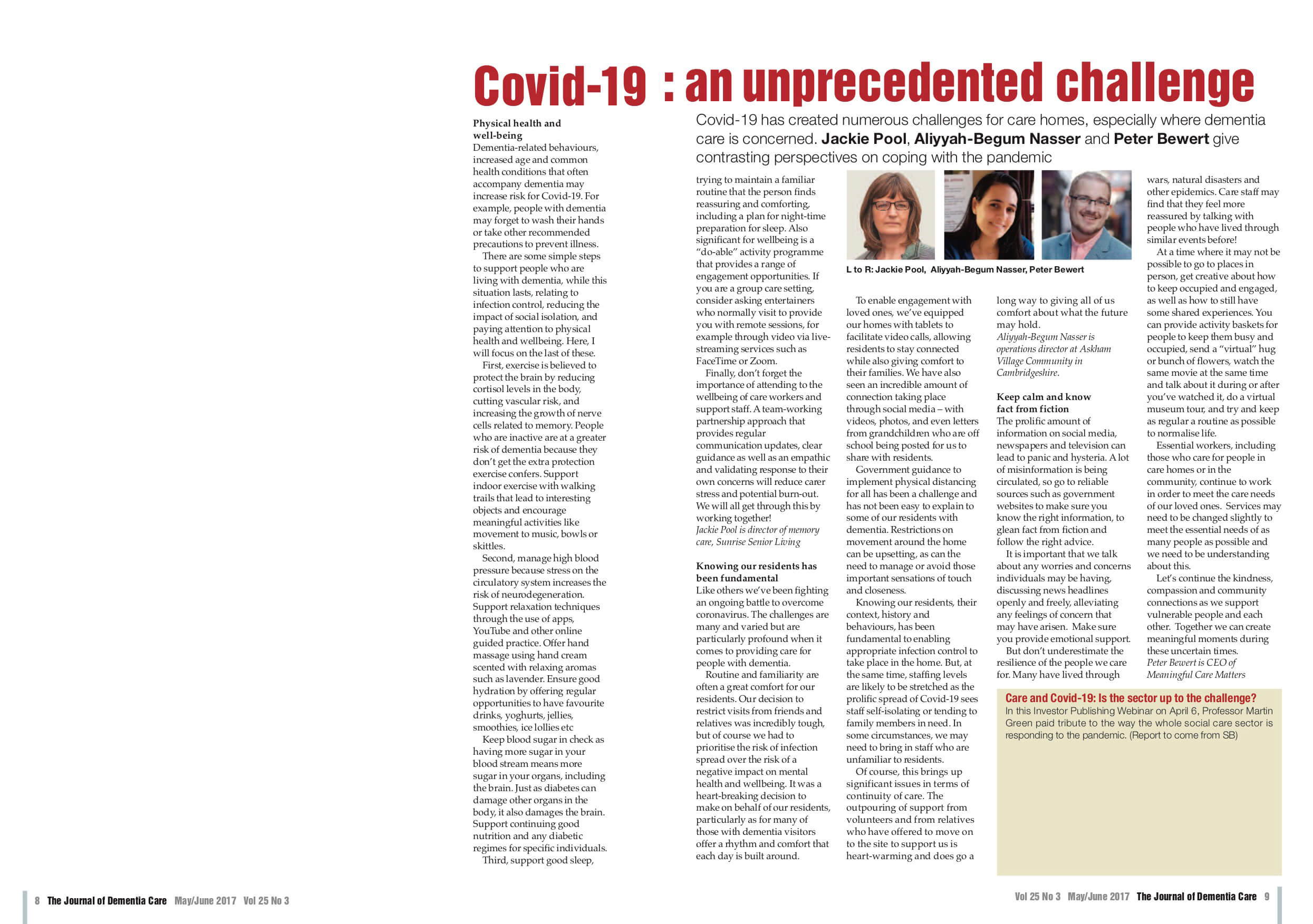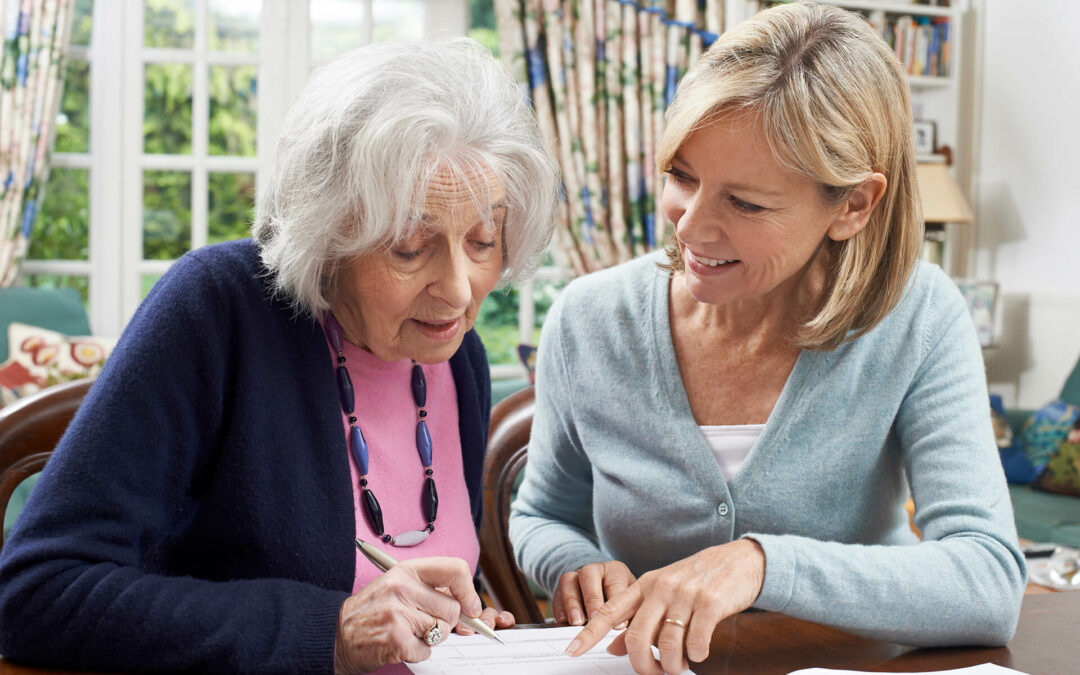The current coronavirus outbreak is an ongoing battle that, as a society, we’re all working hard to overcome. The challenges presented are many and varied, but within the context of providing care for people with dementia, these challenges are particularly profound.
Here at Askham, we’ve rigorously implemented enhanced infection control procedures as soon as the threat of coronavirus became apparent, pre-empting official Government guidance initially, before incorporating the latter as part of our processes wherever needed. Below, we discuss two areas that are impacting our dementia residents in a profound manner: change in routine, and the physical distancing imperative.
Firstly, routine and familiarity is often a great comfort for our residents. Our decision to restrict visits from friends and relatives was incredibly tough. We of course had to prioritise the risk of infection spread over the risk of a negative impact on mental health/wellbeing; a heartbreaking decision to make on behalf of our residents. For many dementia sufferers, visitors offer a rhythm and comfort that each day is built around. This has been disrupted through necessity – a necessity which is all too alien for many of our residents to comprehend in full.
To enable continued engagement with loved ones, we’ve equipped the homes with tablets to facilitate video calls, allowing residents to stay connected, whilst also providing comfort to families in turn. We have also seen an incredible amount of connection taking place through social media – with videos, photos, and even letters from grandchildren who are off school being posted for us to share with residents.
Video calls and seeing familiar faces touches on another important aspect of care. With PPE an essential part of infection control, our staff sometimes need to wear masks. For a dementia sufferer seeing this unfamiliar apparel can be disorientating – so we only use these where strictly necessary. This all adds to a sense of discomfort and disorientation which under normal circumstances we do our utmost to reduce.
Secondly, the government guidance to implement physical distancing for all has been a challenge to implement in the home. In a dementia care setting, the reason for this distancing isn’t something that is easy to explain to somebody suffering with dementia.
Many of our residents like to move around the home, which means any restrictions on this can prove upsetting, while touch and closeness are two other important sensations that also need to be managed or avoided under current circumstances.
The need to manage infection risk and its subsequent impact on the activities that residents are used to can sometimes serve to trigger challenging behaviour. Our staff are doing a fantastic job in implementing required measures whilst ensuring residents remain calm, with any confusion and disruption kept to a minimum. Knowing residents’ behaviours is fundamental to this, and in particular knowing our residents; context and history has so far enabled appropriate infection control to take place within the home.
However, staffing levels are expected to become stretched in the next few weeks and months. The prolific spread of COVID-19 is likely to see staff either needing to self-isolate, or tend to family members in need. In some circumstances, we may need to bring in staff who are unfamiliar to residents. Of course, this brings up significant issues given the importance of continuity of care. However, with dementia, as previously mentioned, managing behaviour requires significant knowledge of the person’s context and history, knowing what may be effective and recognising triggers. Preparation is key here, and we’re working hard to put contingency plans in place to ensure as little disruption as possible, for as long as we can. The outpouring of support from volunteers and from relatives who have offered to move onto the site to support us is heartwarming and does go a long way to giving all of us comfort about what the future may hold.
This crisis is a struggle we’re all facing. Askham isn’t unique in this. Across the spectrum of society, we’re seeing fantastic initiatives bringing communities together. Given the spirit of collaboration, we’d welcome tips, feedback or advice from other dementia homes as to how they’re coping. Whilst we’re facing unprecedented challenges, it also provides the opportunity to enhance our ways of working, learning new methods and techniques to improve the experiences of our residents.

